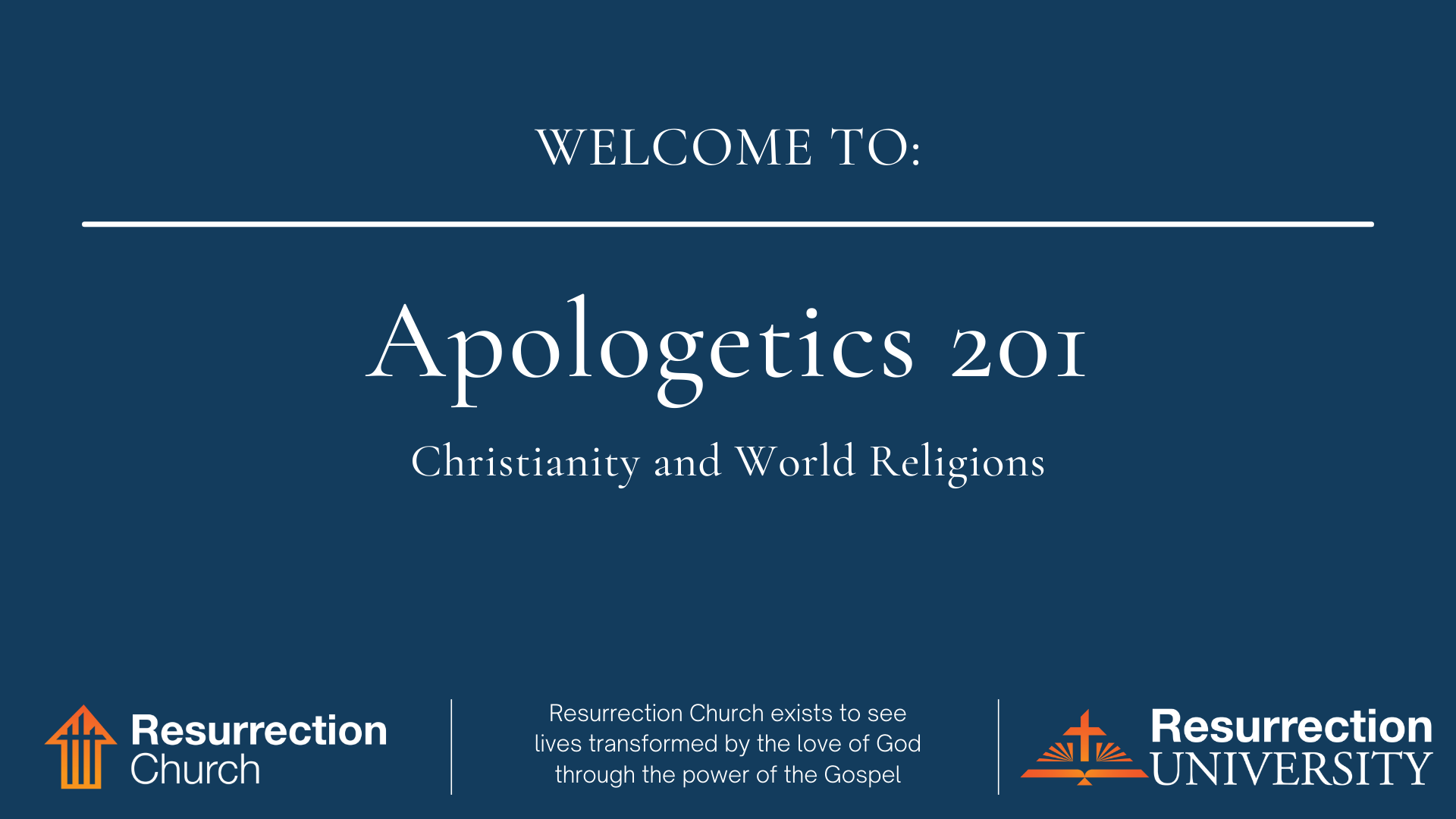Apologetics 201: Christianity and World Religions
The world has become a lot smaller, and we - like Paul - walk through the Areopagus of our world and may be overwhelmed at the number of deities lining the streets. In short, the major faiths accross the world no longer lie nations away but rather have become our conceptual neighbor. So how do we respond? How do we evangelize to those who belong to other faith traditions? Even more than that, how can we even begin a conversation with other faith traditions? All of this has informed our new series, Apologetics 201: Christianity and World Religions. In this series we will survey several of the worlds major religions, discuss what they believe, identify the distinct issues that cause doctrinal divide between our faith and theirs, and conclude with how best to share the love of Jesus with them.
All of the lessons and the corresponding notes can be found below.
Apologetics 201, Part 1 - Introduction: The “Why” Behind Interreligious Dialogue
As we begin a discussion on the major faiths of the world, as Christians we need to walk forward in such a way that we are both winsome and dedicated to the truth of our faith. As such, this lesson begins the series by tracing Paul’s behavior at the Areopagus (Acts 17) and gleaning insight on how we can best engage with other faiths, dialogue without sacrificing persuasion, and demystify the systems of belief present in the major faiths of the world.
Apologetics 201, Part 2 - Hinduism
The first major world religion in our interreligious dialogue is Hinduism. As we survey the Sanatana Dharma, our journey will abide by Paul’s three-fold philosophy marked by our three “A” words - Accuracy, Amicability and Argument. First, we will get accurate as we identify Hinduism’s core beliefs, trace the conclusions of its greatest theologians, and try to best understand how its adherents see the world. Then, we will get amicable by briefly identifying what we admire about their worldview, only to finish by presenting a counter argument from a Christian perspective.
Apologetics 201, Part 3 - Buddhism
We are pleased to welcome Dr. Harold Netland to our third week in Apologetics 201. In lesson 3, Dr. Netland will discuss the beliefs of both ancient and modern Buddhism. In addition, he will also compare Jesus Christ with Siddhartha Gautama as a means to consider the differences between the two religious traditions and as a launching point for interreligious dialogue.
Apologetics 201, Part 4 - Judaism
As we draw nearer to the cultural milieu of our own religious tradition, Judaism inevitably makes and appearance. What is unique about Judaism is that today it “…is just as much a culture, an ethnicity, and a civilization as it is a ‘religion.’” (Derek Cooper, 79). Judaism, though in many ways resembling the worship and belief systems of the Hebrew Old Testament, is quite different than what we come to expect as regular readers of the same text. Join us as we survey Judaism and seek to faithfully render a Christian response.
Apologetics 201, Part 5 - Cults
From the perspective of our nation, the idea and reality of cults are not so foreign to us. Since this series seeks to prepare interaction and bridge points with the religious traditions we encounter, cults will certainly make this list. This session will serve to survey the major cults sourced in our nation’s history, from Mormonism, Jehovah’s Witness, to the Church of Scientology, as well as the core ideologies present in their formulation.
Apologetics 201, Part 6 - Islam
The final (and perhaps most bias-inspired) religious view we will address is Islam. Though we understand it largely from 3rd or 4th hand sources (and often in a light of conflict), the Islamic tradition has enough in common with Christian tradition to allow for meaningful discussion. Their rigorous devotion to monotheism (tawhid), commitment to the reading and study of the Qur’an, and genuine belief that theirs is the fulfillment of what Judaism and Christianity started, should help us understand that their convictions and origin are not as far from Christian thought as we believe. However, this does not mean that the primary doctrinal differences aren’t large. Join us as we observe the differences, similarities and bridge points between our two faiths for the sake of making Jesus’ name known among all nations.

